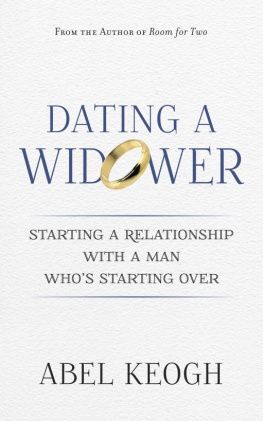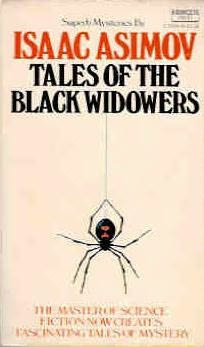Tips From Widowers
Tips From Widowers
Jan Robinson

This book is dedicated to all those who have loved and lost
Contents
When my wife Sin Busby died in 2012, I was overwhelmed by the affection and kindness showered on me by friends and family. But I also felt alone and a bit lost. The point, which anyone widowed will immediately get, is that it is bewildering to have to deal with probably the most traumatic event of your life, and not be able to turn for help and advice to the person on whom you have been leaning for years and decades, your adored dead partner.
There is so much with which to come to terms and sort. In my case and for many there are all the responsibilities of suddenly becoming a single parent. There is the tidal wave of grief that hits you and those close to you, and can make you go somewhat bonkers for a while. And there is a mountain of stressful and tedious administration that is precipitated by any death: from registering it to organising the funeral, dealing with banks and credit-card companies, administering the will, and so on.
What I learned is that because on the whole people live much longer than they did even a generation or two back, as a society weve lost the habit of knowing how to help widows and widowers. I was struck when reading the book The Cruel Mother, written by my late wife about her own great-grandmother, that a century ago communities rallied around and supported the bereaved in a much more effective and practical way than is true today.
So Jans little book for widowers should be seen as compensating in part for how weve lost the habit of death. Now, to be clear, I dont agree with all her prescriptions and tips, and you should not necessarily adopt them all. Every bereavement, every widowing is different. As widows and widowers, we all have much in common, but each one of us is unique, too.
That said, we all could do with advice when our wives die, because there is no dress rehearsal for becoming a widower. Think of this book as a wise and practically minded friend when you need one most.
Robert Peston
December 2015
A couple of years ago I put together a small volume entitled Tips From Widows. This was not because I was in any way an expert on widowhood but because, being a widow myself, I had heard so many stories from other widows. These had helped me immeasurably, so I had the idea of collecting them and putting them in book form.
Small though it was, the book generated a huge response, not only from widows, but also from widowers, who wrote to me in large numbers, and before long it became clear to me that a second book, this time for widowers, was inevitable.
I have been surprised and also moved to receive all sorts of communications from widowers of various ages telling me their stories and often letting me into their innermost thoughts. As I have said before, grief is an unmanageable emotion, and it takes a different form with every person, whether man or woman. Nevertheless, a number of constant themes emerge, and there are certainly a few indisputable dos and donts collected and concentrated in this book.
Although widows and widowers share many similar experiences in bereavement, leading to many similar feelings, there are differences in the ways men cope with this state. It is a sobering thought that half the married population of the world will experience the same thing, and yet so few talk about it. Indeed, it is fair to say, as a broad generalisation, that whereas women readily discuss their emotions, men are far less inclined to do so.
While this book is primarily written for widowers who have lost their wives or partners of the opposite sex, much of the advice in it is pertinent to men who have lost same-sex partners. For purely stylistic reasons, and in order to avoid the repetitive overuse of the rather cumbersome expression wife or partner, I will often refer simply to the wife or to the spouse or to the partner, in most cases using these words interchangeably. It is, as I say, a matter of stylistic convention and nothing more.
A widower who is a retired doctor wrote to me recently and made the point that many older men are, as he put it, classically feeble at fending for themselves; he was referring to simple everyday tasks such as cooking, shopping, washing clothes, or even keeping themselves tidy. This same doctor expressed the view, widely held, that in order to survive, men have for centuries organised society to their advantage, convincing themselves that they are the stronger sex, when all the time they know in their hearts that they are the weaker. Theres nothing like fooling yourself, he concluded.
I have heard, again from a widower, that in his opinion and of course this is the broadest of broad generalisations women score above men in almost every area apart from physical strength, and that this is also true of how they deal with bereavement. Most men, continued this same widower, dread the thought of being widowed, which is why many middle-aged and elderly widowers remarry in haste, often to regret at leisure. Marriage without love is a cold union, and this widower knew a number of couples who had married for companionship and looked as miserable as sin. Another widower had found the whole experience of bereavement so unbearable that the only advice he had to offer spouses of either sex was: Die first.
Whilst the purpose of this book is mainly to offer practical advice to men who are going through a devastating period, I do hope that some of its contents might provoke a smile or two. Furthermore, although the tips offered here are primarily intended for middle-aged or elderly widowers, there is also a section of tips and advice for two other categories. Firstly, young widowers. And secondly, older men, generally married for many years, whose wives have developed severe dementia or some similar degenerative condition, so that the man is a widower to all intents and purposes, although not free to act as one.
Finally, in order to make the point that widowerhood does not have to be associated only with loss and gloom, but that it can also offer opportunities, even later in life, let us look at the word itself and spell out a few more positive associations. Despite his loss and perhaps even thanks to it the widower might ideally be described as follows:
| W | wise |
| I | insightful |
| D | decent |
| O | open |
| W | willing |
| E | entertaining |
| R | reliable |
In other words, whilst I fully recognise that the experience of widowerhood contains much that is difficult to the point of being unbearable, it is not, I hope, trivial or condescending to suggest that the future can hold something of value.
If it is clear that your wife will not live for much longer, it is important to talk to her about the financial implications of her passing away. Some wives will be quite happy to do this. Others might need to be encouraged.
Tip 1 Encourage each other to talk about these matters well before either person has become too ill to do so.
It is essential to have a joint account with your wife. (For more details, see the .)
The moment your wife dies, any bank account thats in her name only will immediately and automatically be frozen, even if you are the sole beneficiary of her will. So if, say, your wife was responsible for all matters relating to household bills, and if she managed these using an account in her name only, you will be unable to access any money at all from this account.










